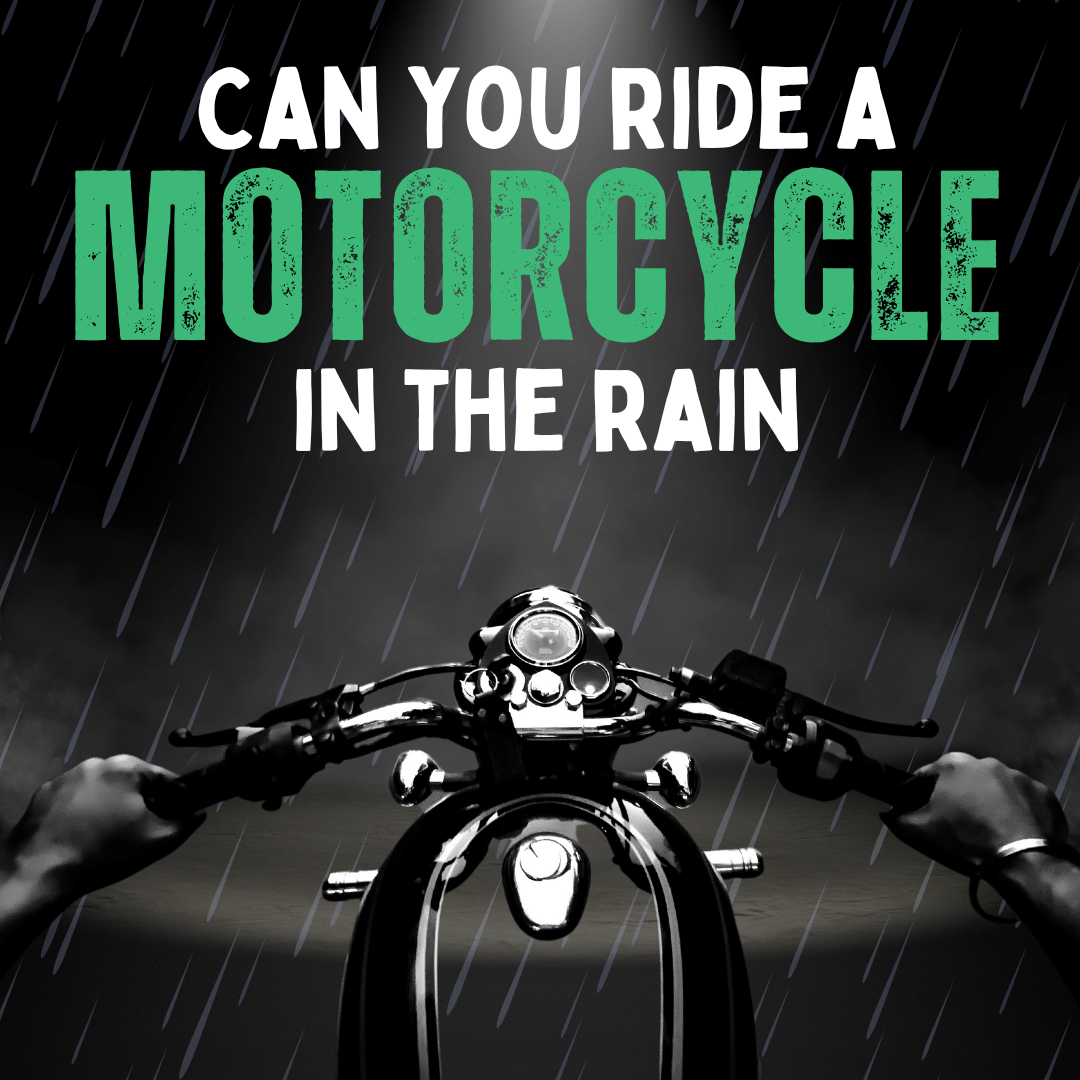
Updated: 15.4.25
Can You Ride a Motorcycle in the Rain?
Ever been stuck under a shelter, waiting for the rain to ease so you could get back on your bike? You’re not alone—and the good news is, it doesn’t have to be that way. With the right preparation, gear, and mindset, you can ride through the rain confidently and safely. Let’s break down everything you need to know.
Quick Answer
Yes, you can ride a motorcycle in the rain. But it requires extra caution due to reduced traction and visibility. Proper gear, pre-ride inspections, and careful riding techniques are essential. In extreme conditions, it's best to stop and wait it out.
1. Pre-Ride Motorcycle Inspection
Before setting off in the rain, give your motorcycle a thorough check. Focus on:
- Tyres: Ensure they have good tread depth for water dispersion.
- Brakes: Responsive and free from excess wear.
- Lights: Headlights, brake lights, and turn signals should be fully functional.
- Leaks: No oil or brake fluid leaks—these become more hazardous when wet.
Related: Understanding the Costs of Painting a Motorcycle
2. Wear the Right Rain Gear
Riding in the rain without proper gear can quickly become miserable—and unsafe. Here's what to wear:
- Waterproof jacket and trousers
- Insulated, waterproof gloves
- Anti-fog helmet with a clear visor
- Waterproof boots
- Hi-vis or reflective elements for increased visibility
3. Riding Tips for Wet Conditions
✅ Stay Smooth
Gentle throttle, brake, and steering inputs are essential. Abrupt movements can lead to a loss of traction.
🚧 Watch Out for Slick Surfaces
Avoid painted road markings, metal plates, leaves, and manhole covers—they become extremely slippery when wet.
👁 Improve Visibility
Use an anti-fog visor treatment and keep your visor clean. Wear hi-vis gear and keep your headlights on at all times.
🛑 Increase Following Distance
Give yourself extra room to react. Wet roads lengthen stopping distances.
⚠️ Avoid Hydroplaning
Slow down and avoid standing water. Hydroplaning occurs when your tyres lose contact with the road surface due to a layer of water.
4. Emergency Handling
💨 Skidding
If your bike skids, ease off the throttle and steer gently into the skid—avoid abrupt braking.
🌊 Large Puddles
If unavoidable, reduce speed and maintain a steady throttle. Puddles may hide potholes or debris.
5. Should You Wait or Ride?
If the rain is light and you're well-equipped, it's usually fine to ride. But if it's pouring and visibility is dangerously low, find a safe place to wait it out. Safety comes first.
6. Experience Matters
Start slow—ride in light rain and low-traffic areas to build confidence. Over time, your instincts will improve, helping you react appropriately in challenging situations.
Summary
Riding in the rain isn’t impossible—it’s a skill. With proper gear, preparation, and practice, you can navigate wet roads with confidence. Always prioritise safety and adjust your riding style to suit the weather. Eventually, you'll find rainy rides less intimidating—and maybe even enjoyable.
FAQs
Can heated gear help?
Yes. Heated gloves and jackets help maintain warmth, especially during long or cold rainy rides.
How can I keep my visor clear?
Use water-repellent sprays and anti-fog treatments. Some helmets come with a pinlock insert to prevent fogging.
How can I be more visible?
Wear high-visibility or reflective gear and use additional lights if possible. Keep your headlight on, even during the day.
What’s the best way to dry my bike?
Wipe it down with a dry cloth, focusing on metal parts to prevent rust. Store in a covered area if possible.
Need More Tips?
Whether you're riding in the rain or just looking for the best gear for your kids’ electric motorbike, we’re here to help!
Visit RiiRoo.com for more guides and gear or chat with us live for personalised advice.
Let’s make every ride—rain or shine—a great one.





Share:
Do Motorcycles Have Automatic Transmissions?
Do Go Karts Have Seat Belts?